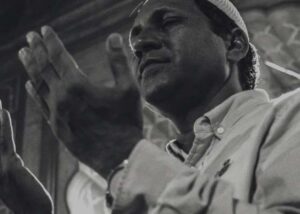Quran
Hadith
Islamic Text
بِسْمِ اللَّهِ الرَّحْمَنِ الرَّحِيمِ
In the Name of Allah Most Merciful Most Kind
Short Answer
Yes, Witr prayer is Wajib. This is the sound opinion in the Hanafi Madhab. However, there is a credible difference of opinion regarding Witr being Wajib or not. Therefore, both views should be respected.
Explanation
عَمْرَو بْنَ الْعَاصِ، خَطَبَ النَّاسَ يَوْمَ الْجُمُعَةِ فَقَالَ: إِنَّ أَبَا بَصْرَةَ حَدَّثَنِي أَنَّ النَّبِيَّ صَلَّى اللهُ عَلَيْهِ وَسَلَّمَ قَالَ: إِنَّ اللهَ زَادَكُمْ صَلَاةً، وَهِيَ الْوِتْرُ، فَصَلُّوهَا فِيمَا بَيْنَ صَلَاةِ الْعِشَاءِ إِلَى صَلَاةِ الْفَجْرِ
(Sayidina) Amr ibn al-Aas addressed the people on Friday saying: Abu Basrah informed me that the Prophet ﷺ said, ‘Indeed, Allah has increased the prayer for you. It is the Witr prayer. So, pray it between the Isha and Fajr prayers.’ (Musnad Ahmad Sahih, 23851).
In the Hadith narration above, the Prophet ﷺ is commanding us to pray Witr prayer. The word in Arabic is فَصَلُّوهَا (So, pray it). Those familiar with the Arabic language will recognise that this is the command or imperative (أمر) form. Consequently, the default ruling with the command form is that it causes obligation. This is one of several Hadith narrations the Hanafi scholars based their ruling upon when they said Witr prayer is Wajib.
Further, the Hadith is authentic. It is narrated in numerous original Hadith collections. As a result, Imam al-Haythami commented upon it and asserted that one of the two narrations in the Musnad of Imam Ahmad has sound narrators. He was, in fact, more specific and identified almost all of the narrators in the chain as narrators of Imams al-Bukhari or Muslim.
رَوَاهُ أَحْمَدُ وَالْطَبَرَانِيُّ فِي الْكَبِيرِ، وَلَهُ إِسْنَادَانِ عِنْدَ أَحْمَدَ أَحَدُهُمَا رِجَالُهُ رِجَالُ الصَّحِيحِ خَلَا عَلِيَّ بْنَ إِسْحَاقَ السُّلَمِيَّ شَيْخَ أَحْمَدَ وَهُوَ ثِقَةٌ. (مجمع الزوائد ومنبع الفوائد)
It was narrated by Ahmad and al-Tabarani in al-Kabir. It has two chains of narration with Ahmad. In one of them the narrators are those of the Sahih. Excluding Ali bin Ishaq al-Sulami. The Shaykh of Ahmad. He is trustworthy (Thiqah). (Imam Noorud-deen al-Haythami, Majma al-Zawaid).
What does Wajib mean?
Linguistically, Wajib refers to something that is necessary. However, our discussion is a legal one. Therefore, we will focus on the legal definition. Legally, Wajib refers to something being an obligation or mandatory, but not as emphatically as Fardh. Therefore, if we say something is Fardh, it is a more emphatic obligation. Whereas, if we say it is Wajib then it is still obligatory but less emphatic than a Fardh.
However, it is sinful to neglect a Wajib action even though the level of sin is not exactly the same as neglecting a Fardh. Consequently, when Hanafi scholars say Witr prayer is Wajib, then it means you must pray it otherwise it is sinful. Due to this understanding of Wajib, Hanafi scholars do not find the following narration contradictory to their position.
عَنْ عَلِيٍّ، قَالَ: الوِتْرُ لَيْسَ بِحَتْمٍ كَصَلَاتِكُمُ المَكْتُوبَةِ، وَلَكِنْ سَنَّ رَسُولُ اللَّهِ صَلَّى اللَّهُ عَلَيْهِ وَسَلَّمَ، وَقَالَ: إِنَّ اللَّهَ وِتْرٌ يُحِبُّ الوِتْرَ، فَأَوْتِرُوا يَا أَهْلَ القُرْآنِ. وَفِي البَابِ عَنْ ابْنِ عُمَرَ، وَابْنِ مَسْعُودٍ، وَابْنِ عَبَّاسٍ: حَدِيثُ عَلِيٍّ حَدِيثٌ حَسَنٌ
(Sayidina) Ali (May Allah be pleased with him) said: The Witr prayer is not obligatory like the prescribed prayers. Rather the Messenger of Allah ﷺ established it through (Sunnah). He ﷺ said: Allah is Witr (unique) and loves the Witr (odd numbered prayer). So perform the Witr prayer. O people of the Qur’an. In this chapter there are also narrations from Ibn Umar, Ibn Masood and Ibn Abbas (May Allah Most High be pleased with them all). The Hadith of Ali is a Hasan narration. (Sunan al-Tirmidhi, 453).
In the narration above, Sayidina Ali (May Allah Most High be pleased with him) says that Witr is not obligatory like the prescribed prayers. The initial statement of Sayidina Ali agrees with the Hanafi Madhab. This is because we do not consider the Witr prayer to be the same as the five daily prayers. As such, this prayer is established as a lesser obligation than the five daily prayers. Due to this, Hanafis say Witr prayer is Wajib whereas the obligatory prayers are Fardh.
A possible concern
In the narration above, Sayidina Ali subsequently mentioned ‘Sunnah’ which is a concern for the Hanafi position.
However, Hanafis have a fairly strong response to this concern. They say it means it is established by the Sunnah. Meaning it is not revealed in the Holy Quran. Therefore, the word Sunnah here does not refer to the legal ruling.
This meaning is also supported by the fact that the Hadith Sayidina Ali quoted immediately afterwards a command for the Witr prayer. Likewise, a command denotes obligation.
The Sahabah differed
As stated above, the issue of Witr is differed over. The soundest position in the Hanafi Madhab is that Witr prayer is Wajib.
However, leading Imams within the Hanafi Madhab and outside of it did differ. They considered it to be Sunnah (recommended) and not Wajib (mandatory). It is vital to understand that many of the differences that exit within the Madhabs of Ahl al-Sunnah are traced back to the Sahabah themselves.
Some ignorant people in our time attack the differences found within the Madhabs. They do not understand that they are, in fact, attacking the Sahabah. They are also attacking the very concept of valid difference of opinion, which is established in Hadith.
عَبْدِ اللَّهِ بْنِ الصُّنَابِحِيّ، قَالَ: زَعَمَ أَبُو مُحَمَّدٍ أَنَّ الْوِتْرَ وَاجِبٌ، فَقَالَ: عُبَادَةُ بْنُ الصَّامِتِ كَذَبَ أَبُو مُحَمَّدٍ أَشْهَدُ أَنِّي سَمِعْتُ رَسُولَ اللَّهِ صَلَّى اللهُ عَلَيْهِ وَسَلَّمَ يَقُولُ: خَمْسُ صَلَوَاتٍ افْتَرَضَهُنَّ اللَّهُ تَعَالَى مَنْ أَحْسَنَ وُضُوءَهُنَّ وَصَلَّاهُنَّ لِوَقْتِهِنَّ وَأَتَمَّ رُكُوعَهُنَّ وَخُشُوعَهُنَّ كَانَ لَهُ عَلَى اللَّهِ عَهْدٌ أَنْ يَغْفِرَ لَهُ، وَمَنْ لَمْ يَفْعَلْ فَلَيْسَ لَهُ عَلَى اللَّهِ عَهْدٌ، إِنْ شَاءَ غَفَرَ لَهُ وَإِنْ شَاءَ عَذَّبَهُ
Abdullah ibn al-Sunabihi said: Abu Muhammad considers Witr to be Wajib. So Ubadah ibn as-Samit said: Abu Muhammad is wrong. I bear witness that I heard the Messenger of Allah ﷺ say: Allah (Most High) has obliged five prayers. So, if someone performs ablution well and offers them at their time, and completes their bowing with awe, he has a covenant with Allah (Most High) that He will forgive him. But if someone does not do so, there is no covenant with Allah (Most High) for him. If He wills, He will forgive him and if He wills he will punish him. (Sunan Abi Dawood 425, Sahih).
In his celebrated work on the Sahabah, al-Isabah, Imam Ibn Hajr al-Asqalani confirmed that Abu Muhammad al-Ansari (أبو محمد الأنصاري) is the Sahaabi being referred to in this narration. Therefore, it is clear that the Sahabah differed over the issue of Witr. The opinion of it being Wajib and the opinion of it being Sunnah existed. The way of Ahl al-Sunnah is to respect credible differences of opinion. This is especially true for differences that existed amongst the Sahabah.
The Madhabs differed
Whenever a credible difference of opinion exists amongst the Sahabah and the Madhabs of Ahl al-Sunnah, there will not be absolutely clear evidence on one side and no evidence on the other side.
However, there are even some people who will accept and respect differences of opinion if they occur amongst contemporary scholars they like. This would suggest such scholars have more authority than the Sahabah.
Despite that, the very fact that there is a difference of opinion is indicative of the fact that both sides have reasonable evidence.
Muslims need to understand this point. Especially since some people give the impression that one side is always clearly and definitively correct and the other in obvious error.
Therefore, the Hanafi Madhab inclined towards the view that Witr prayer is Wajib whilst undoubtedly recognising that there is room for difference of opinion. Furthermore, in the Nass (text) below we find that the difference of opinion exists within the Madhab.
قال أبو حنيفة: الوتر واجب. وقالا: هو سنة، وبه قال الشافعي. (التجريد)
(Imam) Abu Hanifah said: Witr prayer is Wajib. They (Imams Abu Yusuf and Muhammad al-Shaybani) both said it is Sunnah. (Imam) al-Shafi said this too. (Imam Abu al-Husayn al-Quduri, al-Tajreed).
We see in the Nass (text) above that two of the greatest Imams of the Hanafi Madhab considered Witr to be Sunnah. Namely, Imams Abu Yusuf and Muhammad al-Shaybani. They are both students of Imam Abu Hanifah and both great authorities within the Hanafi Madhab and the broader Ahl al-Sunnah tradition. This once again highlights the fact that there is evidence on both sides of this discussion. This is especially true because senior Imams hold views based upon evidence.
Another Hadith
A brief article like this one cannot cover all the related proofs for both viewpoints. For a more comprehensive discussion students should look into detailed jurisprudential works. I will mention one more Hadith which supports the Hanafi view prior to summarizing and concluding the discussion.
عَنْ أَبِي أَيُّوبَ الْأَنْصَارِيِّ، قَالَ: قَالَ رَسُولُ اللَّهِ صَلَّى اللهُ عَلَيْهِ وَسَلَّمَ: الْوِتْرُ حَقٌّ عَلَى كُلِّ مُسْلِمٍ، فَمَنْ أَحَبَّ أَنْ يُوتِرَ بِخَمْسٍ فَلْيَفْعَلْ، وَمَنْ أَحَبَّ أَنْ يُوتِرَ بِثَلَاثٍ فَلْيَفْعَلْ، وَمَنْ أَحَبَّ أَنْ يُوتِرَ بِوَاحِدَةٍ فَلْيَفْعَلْ
(Sayidina) Abu Ayyub al-Ansari narrated that the Prophet ﷺ said: The Witr is a duty upon every Muslim. Whoever wishes to observe Witr with five (prayer cycles, Rakahs), let him do so. Whoever wishes to observe Witr with three, let him do so. And whoever wishes to observe Witr with one, let him do so. (Sunan Abi Dawood, 1422).
رَوَاهُ أَبُو دَاوُد بِإِسْنَادٍ صَحِيحٍ بِهَذَا اللَّفْظِ. (المجموع شرح المهذب)
Abu Dawood narrated it with a sound chain, with this wording. (Imam al-Nawawi, al-Majmoo).
The Hadith above is Hasan. Meaning it is a strong Hadith. In it, the Prophet ﷺ establishes that the Witr prayer is a duty upon Muslims. This wording indicates that Witr is an obligation. Thus, it further supports the Hanafi position that Witr prayer is Wajib.
Conclusion
There are several Hadith narrations that support the Hanafi position. Which is to say that Witr prayer is Wajib. Despite this, a difference of opinion amongst the Sahabah and the Madhabs exists. They also have evidence to support the position they have taken.
Therefore, Muslims must respect both views. They cannot consider one view to be misguided and the other correct. Rather, both views are credible within the tradition of Ahl al-Sunnah.
And Allah Most High Knows Best.
–Answered by Shaykh Noorud-deen Rashid (27.03.24)






